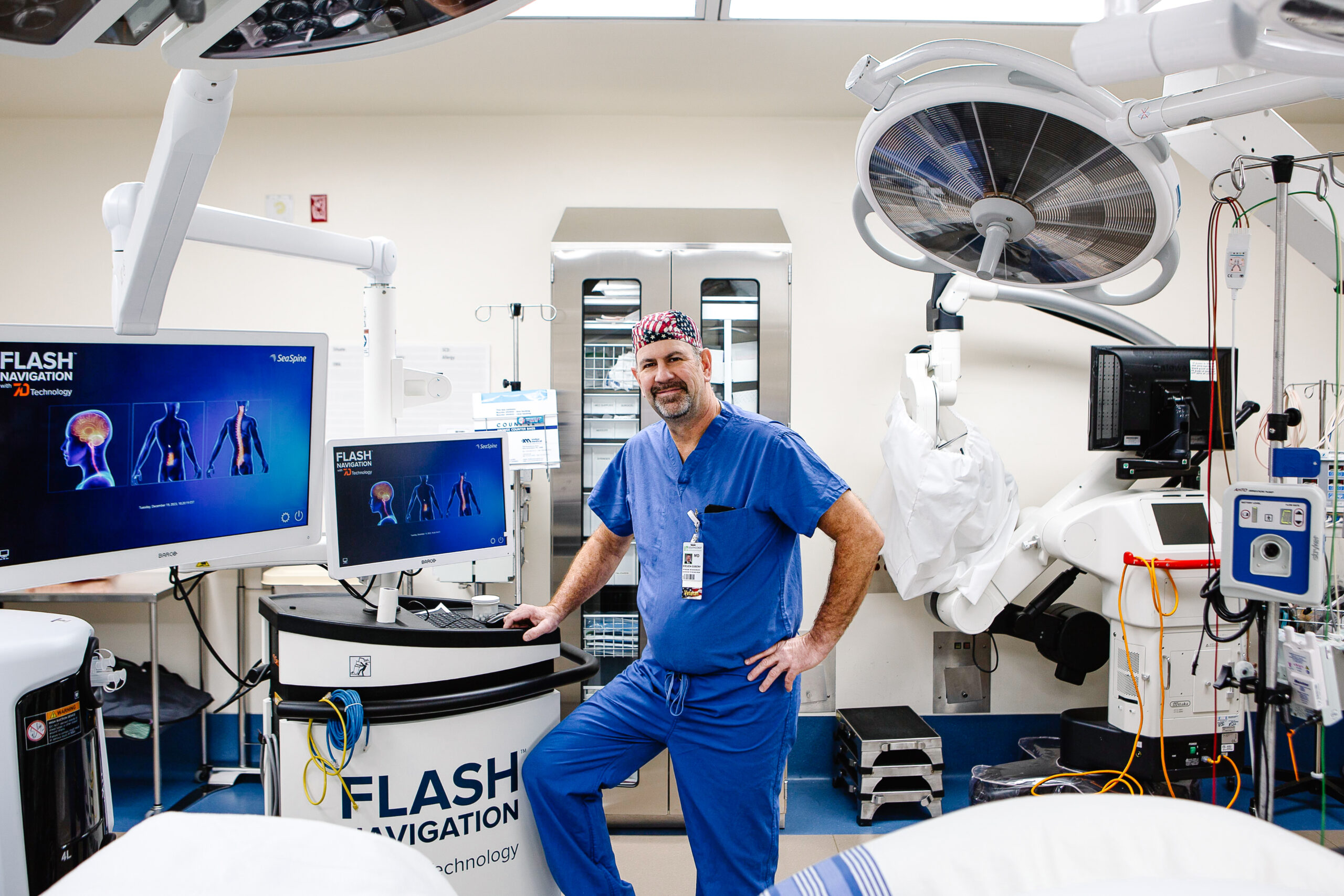- Stereotactic Radiosurgery – using focused radiation to treat tumors and abnormalities without traditional surgery
- Epilepsy Surgery – removing or altering brain tissue to reduce or eliminate seizures
- Hydrocephalus Treatment – inserting a shunt to drain excess fluid and relieve brain pressure
- Brain Tumor Surgery – removing benign or malignant tumors while preserving healthy brain function
- Trauma Surgery – addressing bleeding, swelling, or damage caused by brain injuries
- Microsurgery – performing intricate procedures using magnification for enhanced accuracy
- Nervous System Biopsy – collecting tissue samples to help diagnose neurological conditions
Neurosurgery
Our expert neurosurgeons use advanced techniques to treat complex brain and spine conditions with precision and care. With access to cutting-edge technology and a patient-first approach, we’re here to help you achieve renewed strength, stability and confidence.


When is Neurosurgery Recommended?
Surgery may be recommended when other treatments have not relieved your symptoms or when a condition is causing significant risk to your health or quality of life. Our team will work with you to determine if surgical intervention is the right next step in your care.
Our neurosurgeons treat a variety of nervous system conditions, including:
- Back pain due to sprains, strains, spinal stenosis, osteoarthritis and herniated disc
- Brain, head and spinal cord injuries such as concussion, brain hemorrhage (bleeding), sports injuries and neck and skull fracture
- Spinal deformities including scoliosis (side to side curve) and kyphosis (forward curve)
- Epilepsy and movement disorders like tremor, dystonia, Parkinson’s disease and multiple sclerosis
- Hydrocephalus which is a buildup of fluid in the brain that is present at birth or due to brain trauma
- Tumors, cysts and cancer of the spinal cord and brain
- Vascular conditions such as stroke, brain aneurysm, vascular abnormalities and TIA (transient ischemic attack or “mini-stroke”)


Neurosurgery at Southcoast Health
Neurosurgery is more than just complex surgical operations, and our fellowship-trained neurosurgeons provide expert surgical and non-surgical care for a wide range of brain, spine and nervous system conditions. With access to state-of-the-art surgical technologies and a collaborative team approach, we deliver highly personalized care in a supportive, professional environment — right here in southeastern Massachusetts and Rhode Island. Our surgical services include:
Leading the Future of Brain & Spine Treatment
7D Surgical is like a GPS for back surgery. It utilizes visible light and machine vision to create a 3D image of the surgical area, allowing for faster, more accurate and radiation-free navigation during surgery.
ESS is a minimally invasive surgical technique that uses an endoscope, a small tube with a camera, to access and treat spinal conditions through small incisions. This approach offers several benefits compared to traditional open surgery, including small incisions, reduced tissue damage, faster recovery and less post-operative pain.



